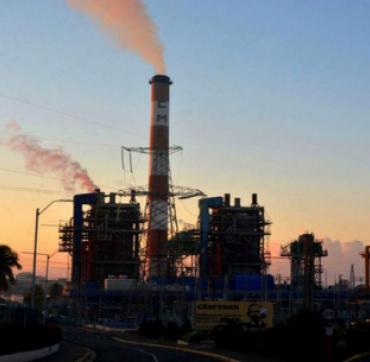Donald Trump Reuses His Electoral Formula: Mexico the External Enemy
especiales

Trump returns to the charge against Mexico in the middle of an election year in the United States. The recent statements by the former president against his neighbor to the south mark his full return to US politics ahead of the midterm elections and, above all, with his goal set for the 2024 presidential elections. Trump seems to be trying to replicate the 2016 campaign with his characteristic anti-Mexicanism that allowed him to reach the White House. What effects did it have in 2016 and what effects will it have now?
Mexico, the Perfect Enemy of Trump
On Saturday, April 23, Donald Trump spoke again about Mexico during a visit to Ohio. His statements were not friendly, on the contrary, the southern neighbor has once again become the focus of attention that he himself created in 2016. Mexico has become the perfect enemy for Trump, one that can hardly respond forcefully at the diplomatic level or economic and from which he has learned to take advantage of when he needs it. At the rally, Trump specifically referred to the episode experienced in 2019, during his presidency, in which he pressured Mexico to become a safe third country and which he also demanded to put a military shield on its northern and southern borders. The Republicans threatened Mexico with imposing 25% tariffs on its products: "Now it's Friday, and on Monday I'm going to put 25% tariffs," which forced Mexico to accept almost everything, except being a safe third country. Trump ended his humiliation with, "I've never seen anyone bend over like that".
The former president could have taken advantage of Russia's invasion of Ukraine to use the latter as the target of his attacks, however, his murky relationship with the Russians and the specter of his intervention in the US elections have made Mexico a better target. Biden's immigration policy has also contributed to this situation, since the current president reversed the safe third country agreements through an executive order in February 2021. Thus, the statements were quickly echoed in Mexico. López Obrador and his chancellor, Marcelo Ebrard, have minimized what Trump said, attributing everything to the electoral climate in the United States, being a mere campaign tool.
You can also read: Elon Musk's Twitter: Freedom Sanctuary or Fake News?
The Trump Effect in 2016
It seemed a paradox that in a nation built by migrants an anti-immigrant and racist candidate was up in the polls. The important thing is that although Mexico was his "piñata", as López Obrador has made the analogy, for Trump all Latin American, Asian, and Muslim migrants were a danger to the United States. It is a xenophobic feeling that allowed him to reach the presidency despite losing the popular vote, thanks to the electoral system. Groups of the same thought with nationalist overtones quickly aligned themselves with Trump, who under the slogan "Make America Great Again" ("Make the United States great again") gave voice to the most radical side of the United States.
During the government of Barack Obama, the unemployment rate was reduced to 4.9% in 2016, according to data from the Statista portal, a figure close to 4.6% prior to the financial crisis of 2008. However, Trump managed to convince a part of the electorate that unemployment was at one of its worst moments, in addition to the fact that migrants and unfair competition from other countries such as China were responsible for the situation. To top it off, Mexicans (and indirectly Latin Americans) also became "rapists" and "murderers" in their hate speech, which Muslims also entered.
Trump thus promised an isolationist and nationalist policy, which would boost American industry again and he fulfilled it. The former president withdrew from environmental agreements, distanced his country from the G7, started a trade war with China, left the United States out of the Trans-Pacific Partnership Agreement (TPP), imposed tariffs on metals such as steel from the European Union, and, North American level, renegotiated the Free Trade Agreement (Before NAFTA/NAFTA now T-MEC) with the United States and Canada, based on threats to break the agreement and impose tariffs. Mexico had to accept most of its demands given the impossibility of defending itself from commercial pressure.
The Trump Effect on Mexico
In 2016, Mexico was governed by Enrique Peña Nieto. After a good relationship with Obama, from 2012 to 2016, the Mexican government opted for Hillary Clinton. Trump's statements in that 2016 campaign reinforced Mexico's support for the Democrats. As a way to deal with the situation, Peña Nieto agreed to receive Trump in Mexico, almost to the extent of a state visit, despite the fact that Trump was just a candidate, who took advantage of this situation in his favor, turning it into a humiliation for the Mexican president. This action cost Peña Nieto's party, the PRI, a lot politically. Once Trump became president, he did not forget Mexico's support for Clinton, thus creating a difficult relationship with Enrique Peña Nieto. In the 2018 elections, López Obrador came to the presidency with a nationalist and anti-Trump speech, also driven by Peña's failed relationship with Trump. The AMLO-Trump relationship seemed headed for disaster. However, López Obrador was careful, both presidents had similar speeches (in nationalism, not in xenophobia) so they managed to create some empathy and establish a relationship at times friendly and full of praise, avoiding confrontation at all costs on the part of the president. of the Mexican Although Trump basically did not forget his speech and his promises, he maintained a functional relationship that served his interests and that he now seeks to repeat.














Add new comment